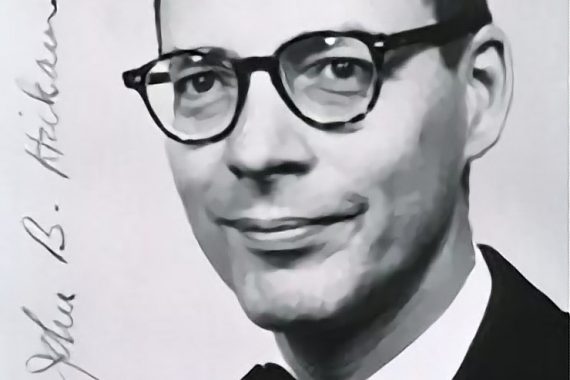Conversations to inspire critical thinking in clinical medicine and education
Welcome to IM Reasoning with your hosts Dr. Art Nahill and Dr. Nic Szecket, two general internists with a passion for teaching clinical reasoning.
Join us for case discussions, conversations and interviews that explore issues important to medical students, trainees and practitioners of clinical medicine, with a special focus on clinical reasoning, the once-mysterious process behind the remarkable abilities of the master clinician.





Love the stump the chumps! I just listened to the episode with the crit care nurse. As soon as the Asthma puffer was mentioned I figured it could explain the tachy, and then it was noted that “he says he doesn’t use it” so i locked in munchhausens! I wondered how the hell you guys weren’t onto it!! It won’t ever happen again… but Münchhausens has always been my favourite diagnosis to throw out there when nothing else makes sense, so it was awesome to think of it early and then actually everything that came after fitted to this dx.… Read more »
Hi Sarah. It is a great word- and funny thing, our next episode is titled “Words” so stay tuned! Glad you’re enjoying the podcasts.
Art
Hi!! I’m a medical student in the UK, and absolutely LOVE your podcast!! I think the topics of your interviews are extremely interesting, and your comments and those of your guests are enriching and inspiring. I particularly enjoyed the episode with Arabella Simpkin, and the ones entitled “turning the wheel” (33 and 35) exploring the connection between creative thinking/art/humanities and clinical reasoning. Those episodes especially resonated with me, as I’m a med student with a humanities background (former pianist and a previous degree in Theology). Moreover, STC is enabling me to learn how to have a structure when approaching clinical… Read more »
Sorry for the delayed reply. So glad to hear you’re learning from the podcast- you’re why we do it!
Hey Guys-
Just a quick thanks from a PA student in Montana.
Your podcast has helped in two big ways so far:
1. I appreciate your methodical approach to developing a differential.
2. Your humility in managing the uncertainty in medicine is instructive, and a great reminder.
Keep it up!
Thanks Tim. Great to hear that you find the podcast helpful. Thanks for the feedback.
Hello, I have just recently started listening to your PodCasts and find them very helpful. I wish you guys had been around when I was at Medical School! Or I had been lucky enough to work with you. I am a paediatrician, went to Auckland Med School (a long time ago) and am now working in Australia. I haven’t looked at the whole index of PodCasts but wonder if you have any that address issues in a clinic/outpatient type setting, as opposed to an acute or inpatient setting. You can’t always go back and have another look in with an… Read more »
Hi Rachel. We haven’t distinguished ambulatory from hospital based diagnosis because they seem cognitively very close. Is not the opportunity for follow up easier (in general) in the ambulatory setting than the inpatient one, or is that my bias? Many of the ‘hospitalists’ I know bemoan the fact that they rarely if ever find out what happened to a patient once they’ve been discharged from hospital.
Thank you for producing such a wonderful podcast. Stump the chumps is amazingly well done and your other episodes on diagnostic errors have helped me so much being a relatively new academic hospitalist. I have a case you might find interesting and would be happy to discuss details in a private email if you’d like, it might even be good enough for stump the chumps. It stumped me, but I highly doubt it will stump you guys. Thanks again for all the work you’re putting into this podcast and I hope you continue producing such great material.
Thanks Emily, glad you’re getting something out of the podcasts. You can message us through our Facebook page or contact me at artn@adhb.govt.nz about the case.
Art
Love the podcast! Very insightful and interesting to listen to! You both have great on air presence. I especially enjoyed the cognitive autopsy episode, despite the awful outcome. Would love to hear more about how you unpack common patient symptoms to get a better understanding of each symptom (e.g. OPQRST; dolor, calor, rubor, tumor; etc) and how the patients answers alter your differential diagnoses. Thanks for all the great information! Look forward to future episodes!
Thanks Mike- sorry for the late reply but we’d been enjoying a lovely southern hemisphere summer. Glad you’ve enjoyed the podcast. I think we try to describe how we unpack common symptoms on our STC episodes. If you have a particular case in mind, send it along!
Art Nahill
Just found you two, through a recommendation from another podcast “The Curbsiders”. Have enjoyed several of your podcasts already, and very fond of your STC episodes. Just watched the Larry Weed video you posted. Thanks so much.It is amazing!!Thank you for the great work you are doing. -Sarah (NP in Maryland)
Thanks Sarah and sorry for the late response. Glad you foundd something useful (and entertaining) from the podcasts. Recommend us to your friends. You might want to follow us on Facebook and/or Twitter as we post more stuff there.
Art Nahill
I am still listening to the podcasts, albeit in fits and starts. I have started reading the “Undoing Project”, by Michael Lewis, about Daniel Kahneman and Amos Tversky. Also, I have subscribed to the Isabel Project for my practice, and am using it side by side with VisualDx, another DDx search program.
I hope you get some more listeners, because I have been telling everyone I can about your podcast.
Keep up the good work!
Cheers from snowy Rochester.
Recently read the Undoing Project as well. Really enjoyed it although found the souring of the relationship between Kahneman and Tversky a bit sad, though probably inevitable.
Thanks for talking us up- we could always use more listeners. Might want to follow us on Facebook or Twitter and suggest to friends (enemies perhaps?) that they do the same. We post more ‘stuff’ on those outlets than we do this website.
Art Nahill
Just discovered your podcast, and am really enjoying it! “Thinking Fast and Slow” has been sitting on my bookshelf and I may give it another go. I have long been a fan of the “vignette” in education. We used to have a regular “Bored Questions” segment in clinic at the SUNY Upstate Outpatient Clinic in Syracuse, New York. The master clinician (Walter W. Tunnessen) would write 4 small paragraphs on the blackboard (we had an actual blackboard, but it was green), and would invite us to speculate on the diagnoses. We were allowed to ask questions, which he might or… Read more »
Thanks for the feedback Michael. I certainly recommend dusting off that copy of Thinking Fast and Slow. It has lots to say about what we do in medicine. Love the “Board” Questions concept- sounds like it exercised the System 1 illness script muscles!
Guys,
You need to make Chang (from Ep 32: STC with Chang) a regular contributor! Also thanks for a great discussion of what I think are the most useful cases to go over: atypical presentations of (relatively) common diseases.
Keep up the good work,
Nick (Little Rock, AR hospitalist)